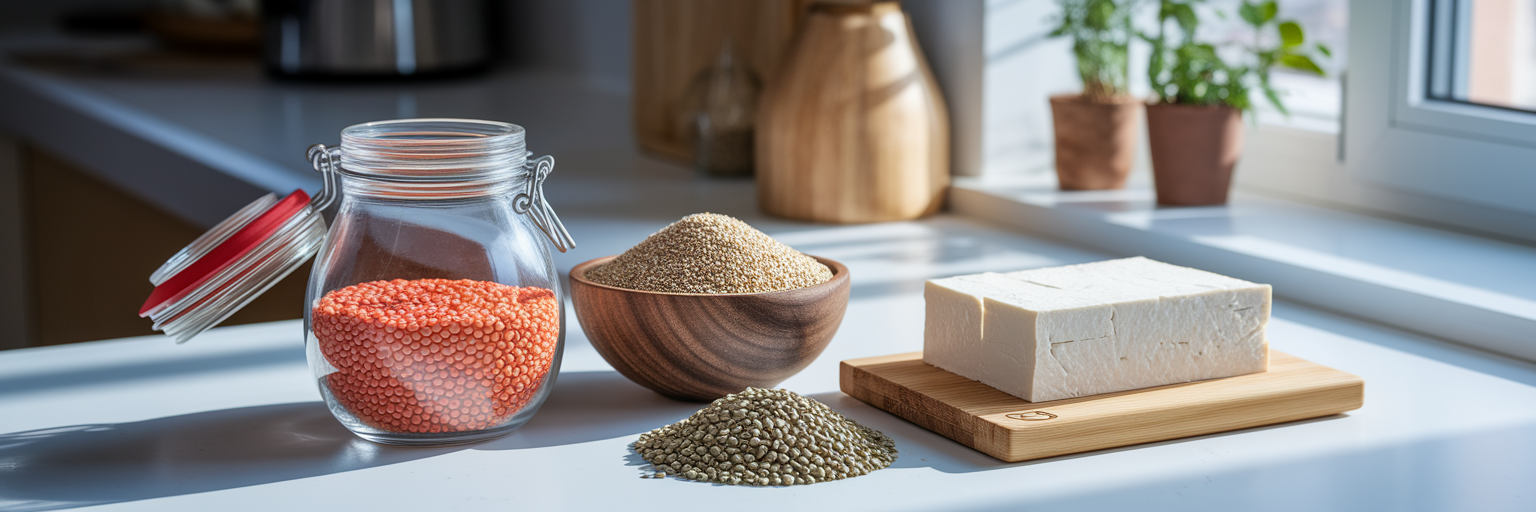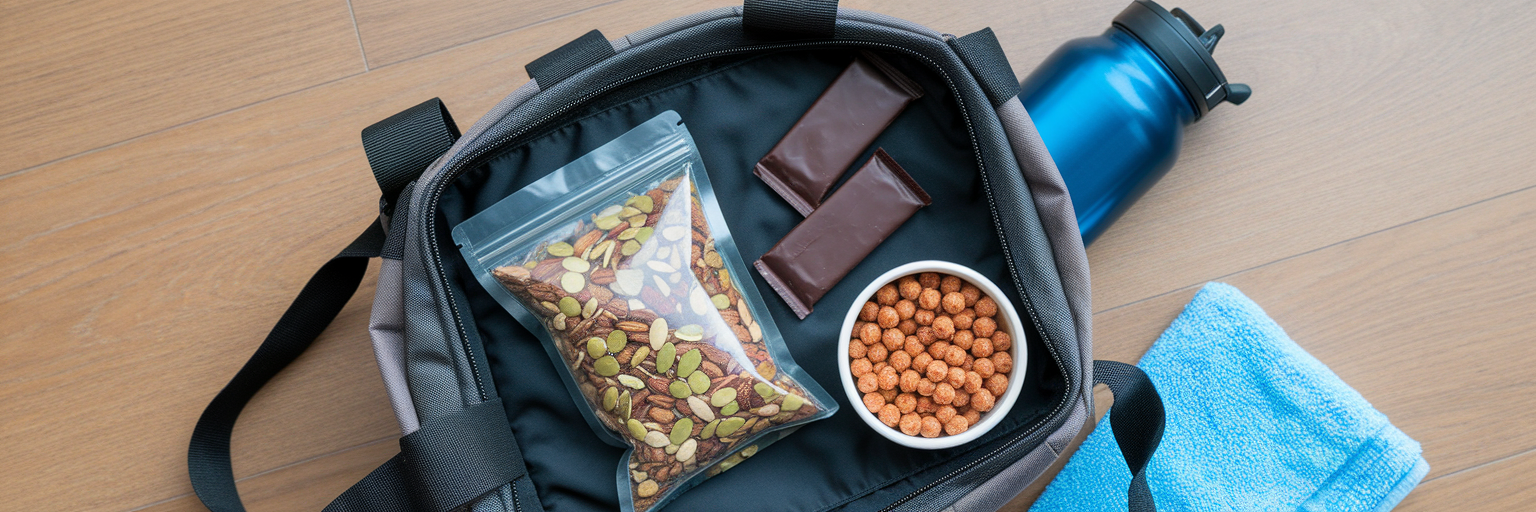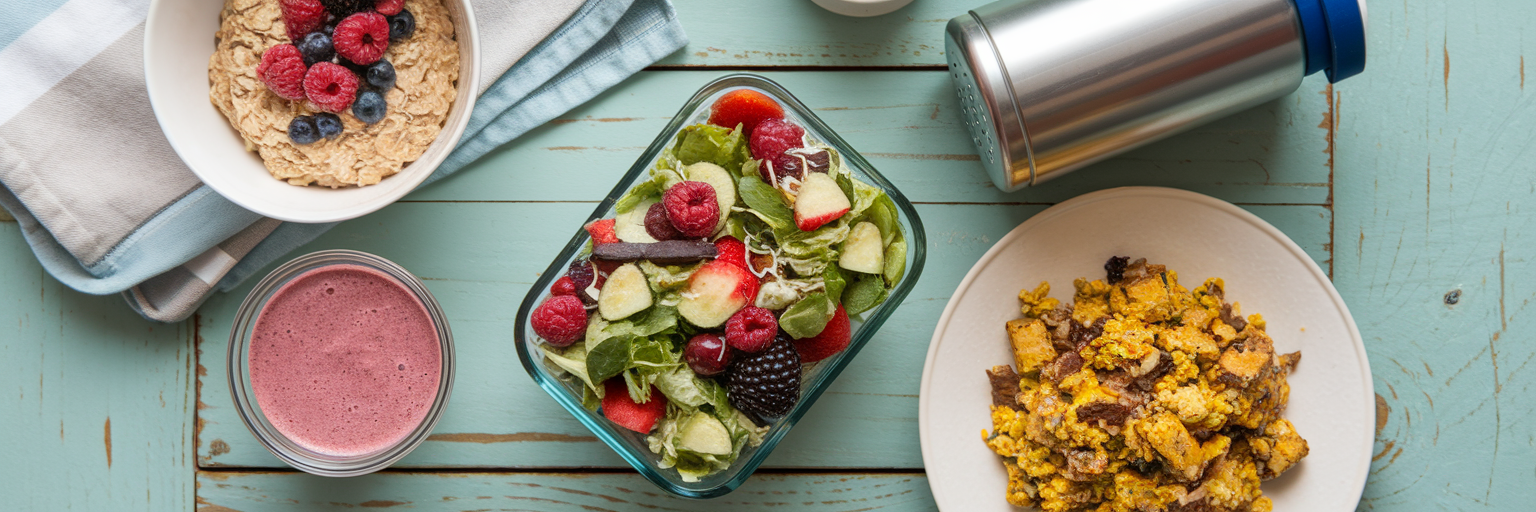The Modern Vegan Athlete's Protein Challenge
For athletes, every training session is a deposit into their performance bank. The real interest, however, is earned during recovery, a process fueled almost entirely by what you eat. We all know that feeling of finishing a tough workout, knowing you need to refuel, but being too exhausted to even think about cooking a complicated meal.
This is the primary challenge for many vegan athletes: balancing a demanding training schedule with the need for convenient, high-quality protein. It’s not a barrier, but a puzzle with a clear solution. The old idea that plant-based diets lack enough protein for serious performance is simply outdated. This guide is here to give you a practical, no-fuss plan for portable snacks, quick meals, and simple strategies to fuel your body effectively without spending hours in the kitchen.
Calculating Your Daily Protein Needs
Think of protein as the essential building blocks your body uses to repair and grow muscle tissue after exercise. Because athletes are constantly breaking down and rebuilding muscle, they naturally require more protein than someone with a sedentary lifestyle. So, how much do you actually need?
A good starting point for athletes is to aim for 1.2 to 2.0 grams of protein per kilogram of body weight (or about 0.5 to 0.9 grams per pound). But remember, this is just a guideline. The real key is to listen to your body. Are your energy levels consistent? Are you recovering well between sessions? Your own experience is the best measure.
Instead of trying to consume all your protein in one or two large meals, focus on "protein pacing" by spreading your intake throughout the day. This approach helps optimize muscle protein synthesis, giving your body a steady supply of those crucial building blocks. According to a report from the University of Maryland Medical System, a well-planned vegan diet can easily meet these needs, especially when you include a variety of protein-rich foods.
Foundational Whole-Food Protein Sources

Before you even think about supplements, your diet should be built on a strong foundation of whole foods. These are the most reliable and nutrient-dense plant based protein sources available. Supplements are great for convenience, but they should always be secondary to what’s on your plate.
Legumes: The Versatile Powerhouses
Lentils, chickpeas, and black beans are staples for a reason. They are packed with protein and fiber, which aids in digestion and helps you feel full longer. A cup of cooked lentils can provide around 18 grams of protein. You can add them to soups, build a hearty salad, or mash them into veggie burgers. They are incredibly versatile and budget-friendly.
Soy: The Complete Protein Champion
Soy products like tofu, tempeh, and edamame are some of the few plant foods that contain all nine essential amino acids, making them a complete protein. This is incredibly important for muscle recovery. Tempeh, a fermented soybean cake, also offers gut-health benefits from its probiotics. Try scrambling firm tofu for a high-protein breakfast or marinating and baking tempeh strips as a savory addition to sandwiches and bowls.
Grains and Seeds: The Nutrient-Dense Boosters
Don’t overlook the power of grains and seeds. Quinoa and amaranth are also complete proteins, making them excellent bases for any meal. Seeds like hemp, chia, and pumpkin are small but mighty, offering a significant protein punch along with healthy fats. Just three tablespoons of hemp seeds can add 10 grams of protein to your morning oatmeal or smoothie. For readers looking for creative ways to use these ingredients, there are many 3 easy vegan protein recipes you'll actually crave that can transform these staples into delicious meals.
| Protein Source | Protein per Serving (Approx.) | Quick Usage Idea |
|---|---|---|
| Lentils (cooked) | 18g per cup | Base for a hearty soup or salad |
| Chickpeas (cooked) | 15g per cup | Roast for a crunchy snack or blend into hummus |
| Firm Tofu | 22g per ½ block | Scramble for breakfast or cube for stir-fries |
| Tempeh | 31g per cup | Marinate and bake as a bacon substitute |
| Quinoa (cooked) | 8g per cup | Use as a base for a grain bowl |
| Hemp Seeds | 10g per 3 tbsp | Sprinkle on yogurt, oatmeal, or salads |
| Pumpkin Seeds | 12g per cup | Add to homemade trail mix |
Note: Protein content can vary slightly by brand and preparation method. These values serve as a general guide for meal planning.
Quick High-Protein Vegan Meal Prep
Knowing what to eat is one thing; having the time to prepare it is another. Here are a few quick vegan meals for muscle gain that you can make in 15 minutes or less, proving that you don’t need to sacrifice your schedule for good nutrition.
- The 'Protein-Boosted' Oatmeal Bowl: This isn't your average oatmeal. In a bowl, mix rolled oats with a scoop of your favorite vegan protein powder, a tablespoon of chia seeds, and a handful of almonds. Add hot water or plant-based milk, stir, and top with fresh berries. It’s a complete, warming meal that’s ready in minutes.
- The 'Power Pita' Wrap: For a packable lunch that won't get soggy, grab a whole-wheat pita. Spread a generous layer of hummus inside, then stuff it with baby spinach and pre-cooked, sliced tempeh or a handful of chickpeas. It’s a balanced meal you can eat with one hand.
- The 'Speedy Scramble' Dinner: A tofu scramble is one of the fastest high-protein dinners you can make. Crumble a block of firm tofu into a non-stick pan with your favorite seasonings (like turmeric and nutritional yeast) and some pre-chopped veggies. It’s ready in under 10 minutes.
For more ideas on how to build a delicious and protein-packed meal plan, readers can always explore our blog.
Portable Protein Snacks for Peak Performance

Snacks are an athlete's secret weapon for maintaining energy and preventing muscle breakdown between meals. Having portable high protein vegan snacks on hand means you’re never caught unprepared. Here are some easy options:
- Homemade Trail Mix: Forget the sugary store-bought versions. Make your own by combining almonds, walnuts, pumpkin seeds, and dried edamame. It’s a crunchy, satisfying mix of protein and healthy fats.
- Roasted Chickpeas: A fantastic savory snack. Toss a can of drained chickpeas with a little olive oil and your favorite spices, then roast until crispy. They are a great alternative to chips.
- High-Quality Vegan Protein Bars: When you're really in a pinch, a good protein bar can be a lifesaver. Look for bars with at least 15 grams of protein and less than 10 grams of sugar to ensure you’re getting fuel, not just a candy bar in disguise.
- No-Bake Protein Balls: These are incredibly easy to make ahead of time. Just mix one cup of rolled oats, half a cup of nut butter, a quarter cup of maple syrup or agave, and a scoop of a quality powder like our Beyond Good Foods Chocolate Vegan Protein to make it both delicious and effective. Roll into balls and store in the fridge for a perfect grab-and-go snack.
Using Vegan Protein Powders Strategically
Vegan protein powders are an incredibly convenient tool, but they are just that: a tool. They work best when used to supplement a diet rich in whole foods, especially in that critical post-workout window when your body is primed for nutrient absorption. Understanding the different types can help you find the best vegan protein for athletes based on your goals.
- Pea Protein: Rich in branched-chain amino acids (BCAAs), which are vital for muscle building.
- Soy Protein: A complete protein that is easily absorbed and effective for muscle repair.
- Hemp Protein: Offers a good dose of protein along with added fiber and healthy omega-3 and omega-6 fats.
Many of the best powders use a blend of sources, like brown rice and pea protein, to create a more complete amino acid profile. And don't just limit them to shakes! You can add a scoop to your morning oatmeal, pancake batter, or homemade energy balls to easily boost your protein intake. For those wanting a deeper dive, a guide on the best protein powders can provide even more clarity on making the right choice for your goals.
A Sample High-Protein Day on the Go

Wondering how to get enough protein as a vegan athlete? Seeing it all laid out can make it feel much more achievable. Here’s what a typical high-protein day might look like, using the ideas we’ve discussed:
- Breakfast (7 AM): Protein-boosted oatmeal with berries and a sprinkle of hemp seeds.
- Mid-Morning Snack (10 AM): An apple with two tablespoons of almond butter.
- Lunch (1 PM): Large salad with mixed greens, one cup of chickpeas, quinoa, and a lemon-tahini dressing.
- Pre-Workout Snack (4 PM): A vegan protein bar or a handful of roasted chickpeas.
- Post-Workout (6 PM): A smoothie made with soy milk, a scoop of pea protein, a banana, and a handful of spinach.
- Dinner (7:30 PM): Quick tofu scramble with bell peppers and a side of whole-wheat toast.
Your Game Plan for Convenient Vegan Fueling
Fueling your body as a vegan athlete doesn't have to be complicated or time-consuming. By focusing on a few key principles, you can build a simple and effective nutrition plan that supports your performance. Remember the three pillars: prioritize whole foods as your foundation, supplement strategically with powders and bars when you need a convenient boost, and plan ahead with quick meals and portable snacks.
A high-protein vegan diet is not only possible but can be delicious and easy to maintain. Consistency is what will ultimately drive your results, both in the gym and in the kitchen.
Feeling fueled up? Share this guide with another plant-powered athlete in your life! And if you're ready to stock your pantry, explore our full collection of plant-based supplements.



